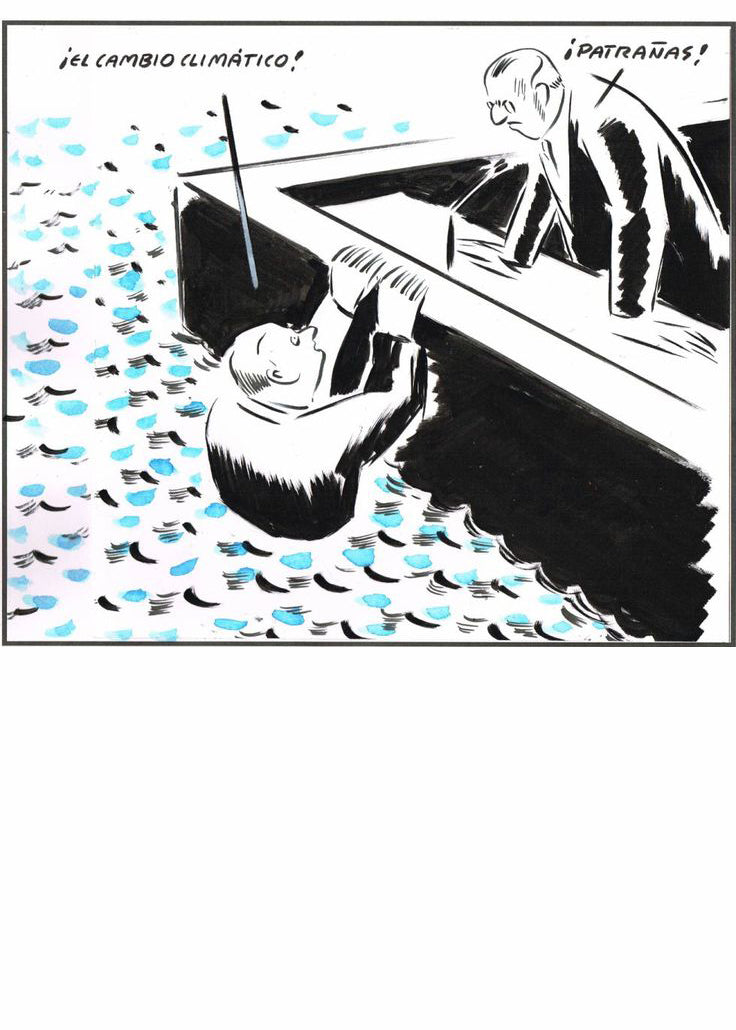Meta-Spanish
We propose a contemporary and atypical reinterpretation of our heritage. Spanish culture is woven from countless regional, historical, and social nuances that create a rich mosaic of tradition and expression. At GOSPEL ESTUDIOS, we want to deconstruct and recontextualize the references that have shaped us.
In an era of globalization, we stand for nuestras raíces.
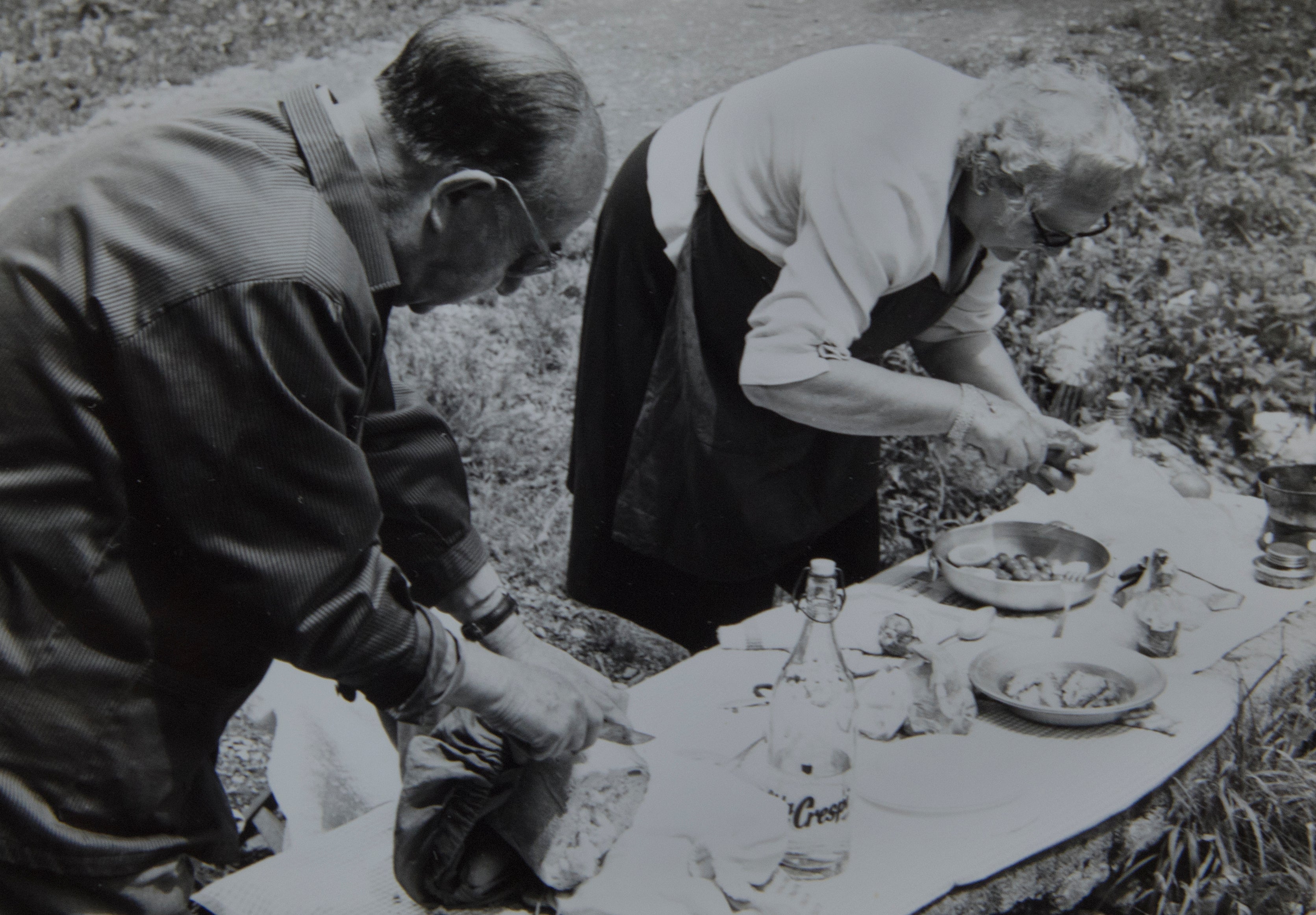
Clara's great grandparents parant taula
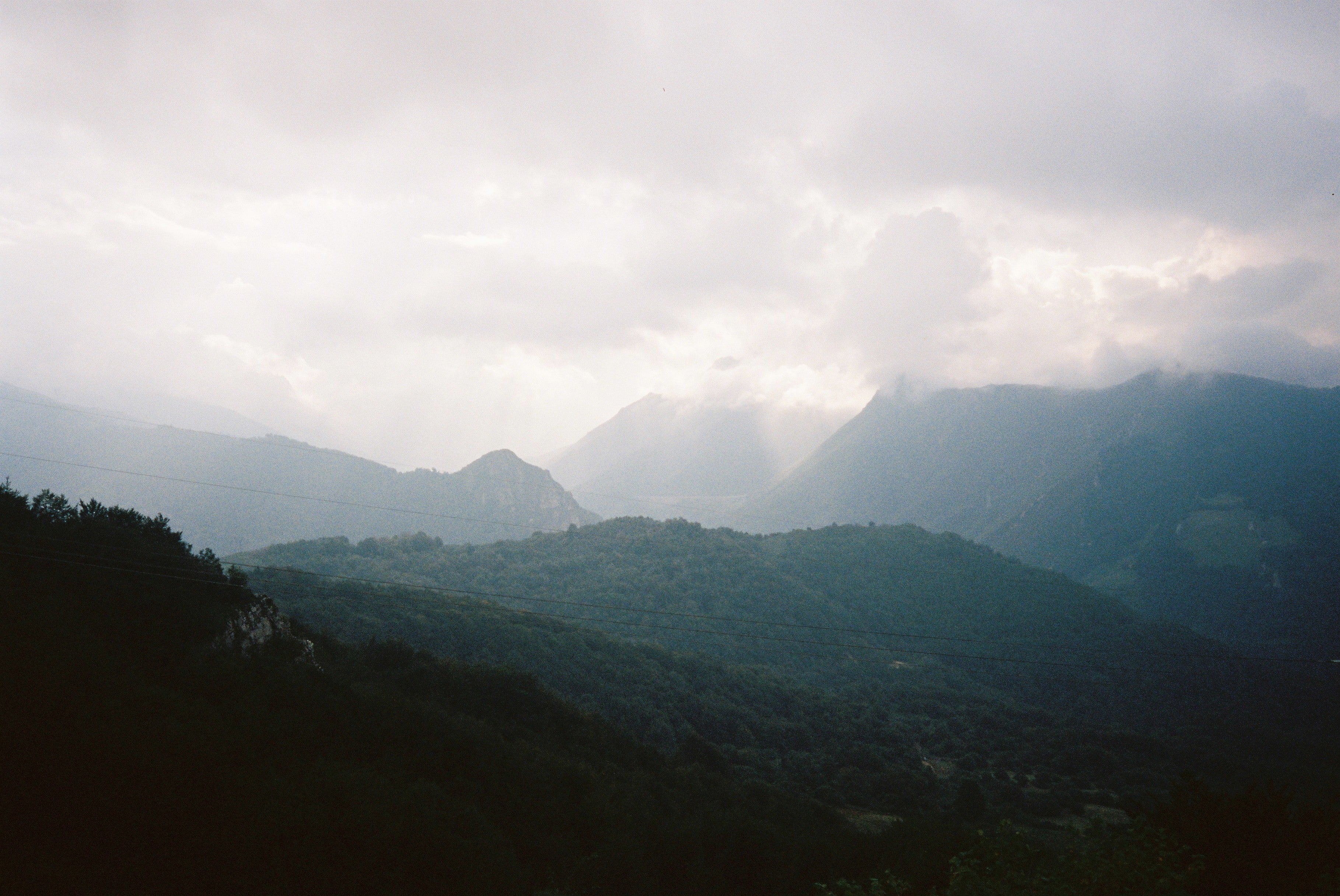
Picos de Europa, Asturies
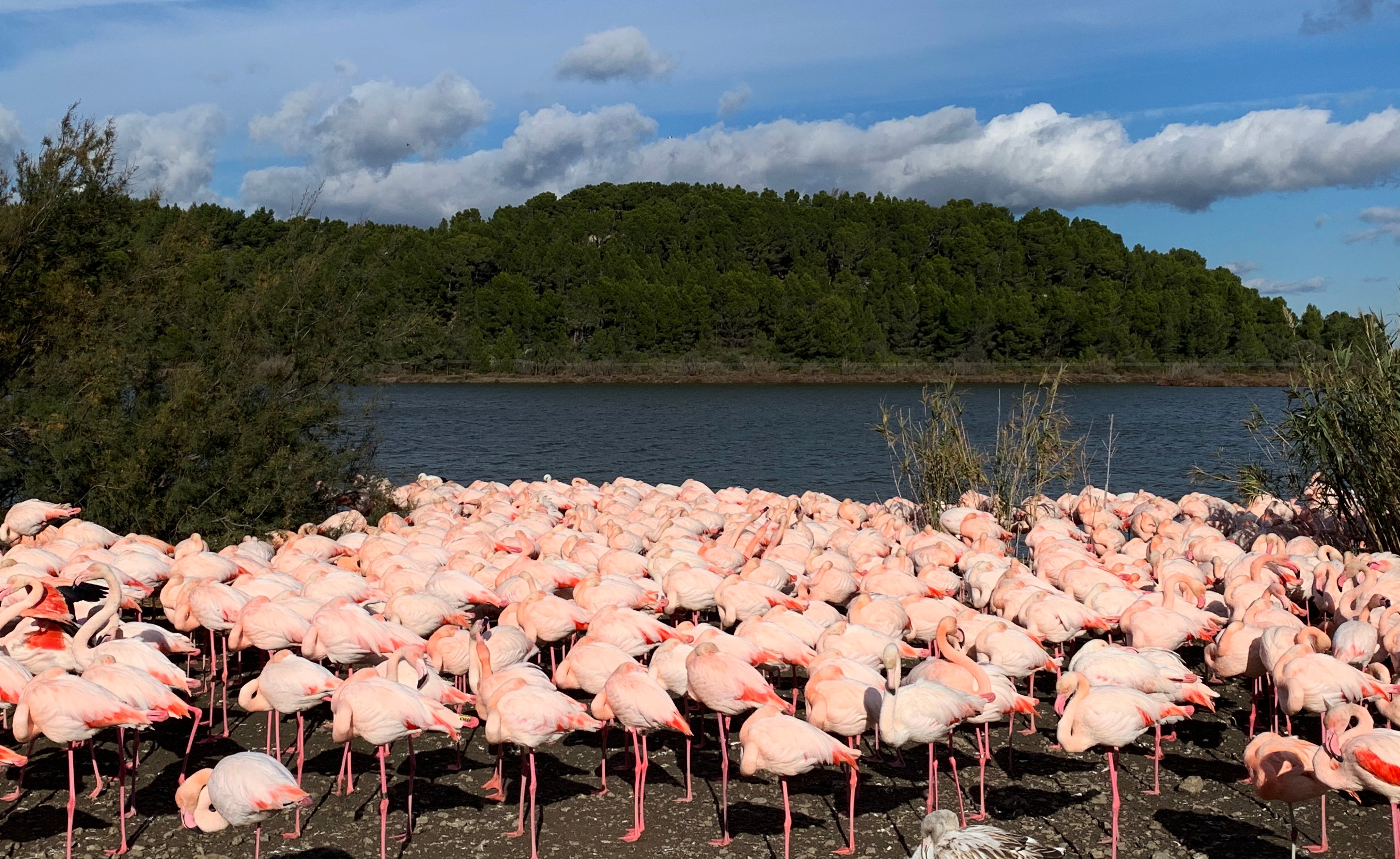
Flamingos at Delta de l'Ebre
Have you ever visited Spain?
We have the privilege to be from a land where you can find fields full of almond trees in bloom, gatherings of elderly friends who spend their afternoons chilling in the parks, sierras that disappear into the clouds, flocks of flamingos, forgotten languages, and rural festivals that predate Roman times.
But if you have visited, it’s likely that at some point of your trip you’ve found yourself completely surrounded by toro-shaped magnets, aprons with the polka dots of a bailaora dress and colorful signs that hound you to consume PAELLA, TAPAS, and SANGRÍA.
At least, we certainly have. Our traditions are often portrayed in this simplified, almost caricatured manner, commonly known as ‘typical Spanish’. This imagery, prevalent in souvenirs, postcards, and representations of the country abroad, undervalues the depth and variety of Spanish culture, and is barely able to scratch the surface. As one would expect, we don’t f**** do siesta everyday.
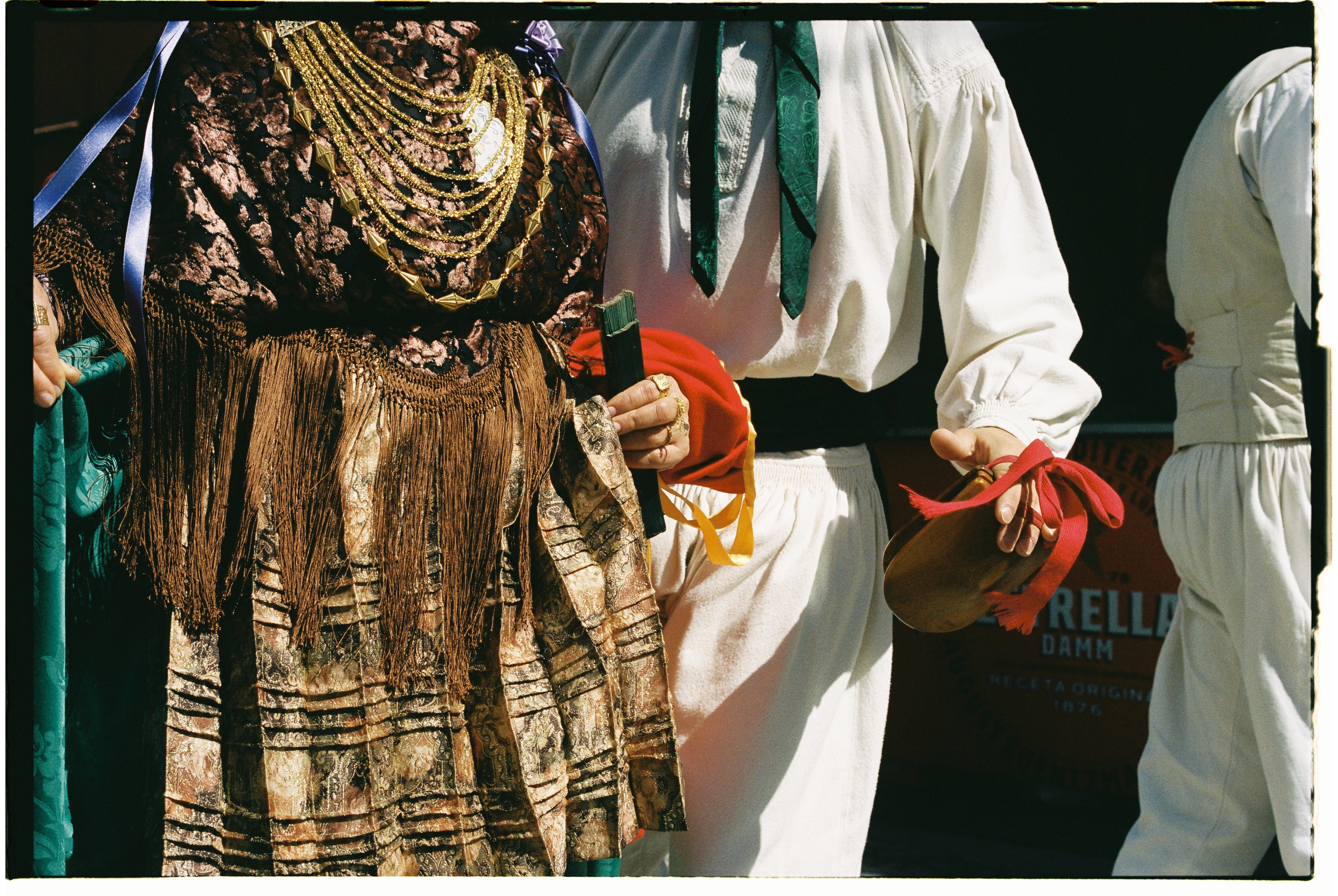
Festes de Sant Antoni de Portmany, Eivissa.
La Patum de Berga — La Patum channel
In this context, meta- means self-referential; self-aware. We are not in for the easy references
Our country is rich in folklore, attire, crafts, music, gastronomy, art, and architecture. We’re proud of it, claro, so our goal is to showcase all those hidden layers often overlooked or misunderstood, while recontextualizing Spanish crafts and lifestyle in a contemporary way.
However, our scope goes beyond nostalgia. What we're doing here is an ongoing research process in which we dig into our roots to recover strong images and solutions; lessons from the past that resonate with us and are loaded with future, as Gabriel Celaya would say.
Curiosity guides our way. We want to take fresh looks at Iberian imagery, Moorish pottery, Celtic mythologies, Mediterranean crafts, prehistoric masks, Spanish costumbrismo... a lot of cosas. We aim to offer new readings through our modern lens, paying homage to our roots while also playing with new creative ideas.
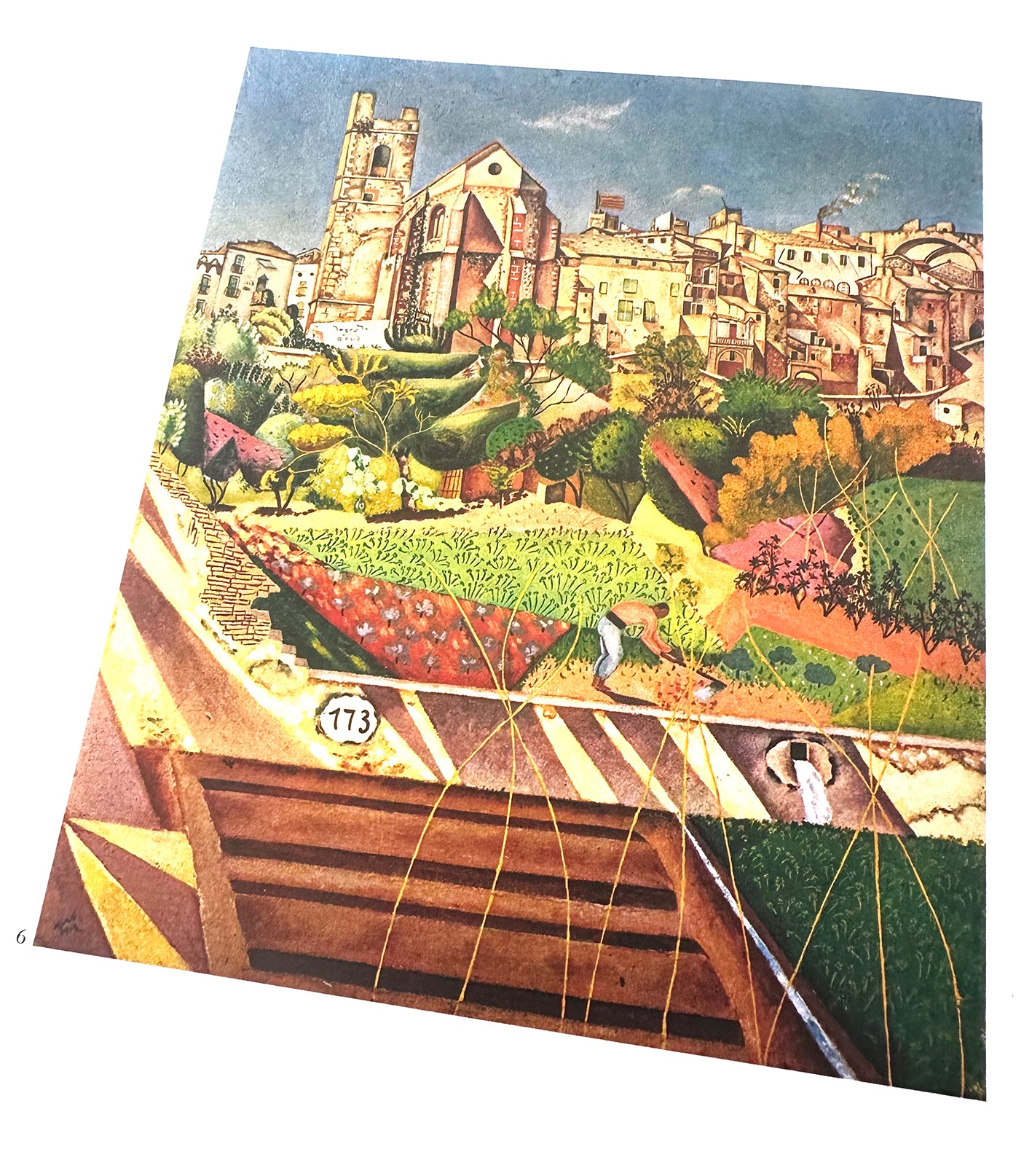
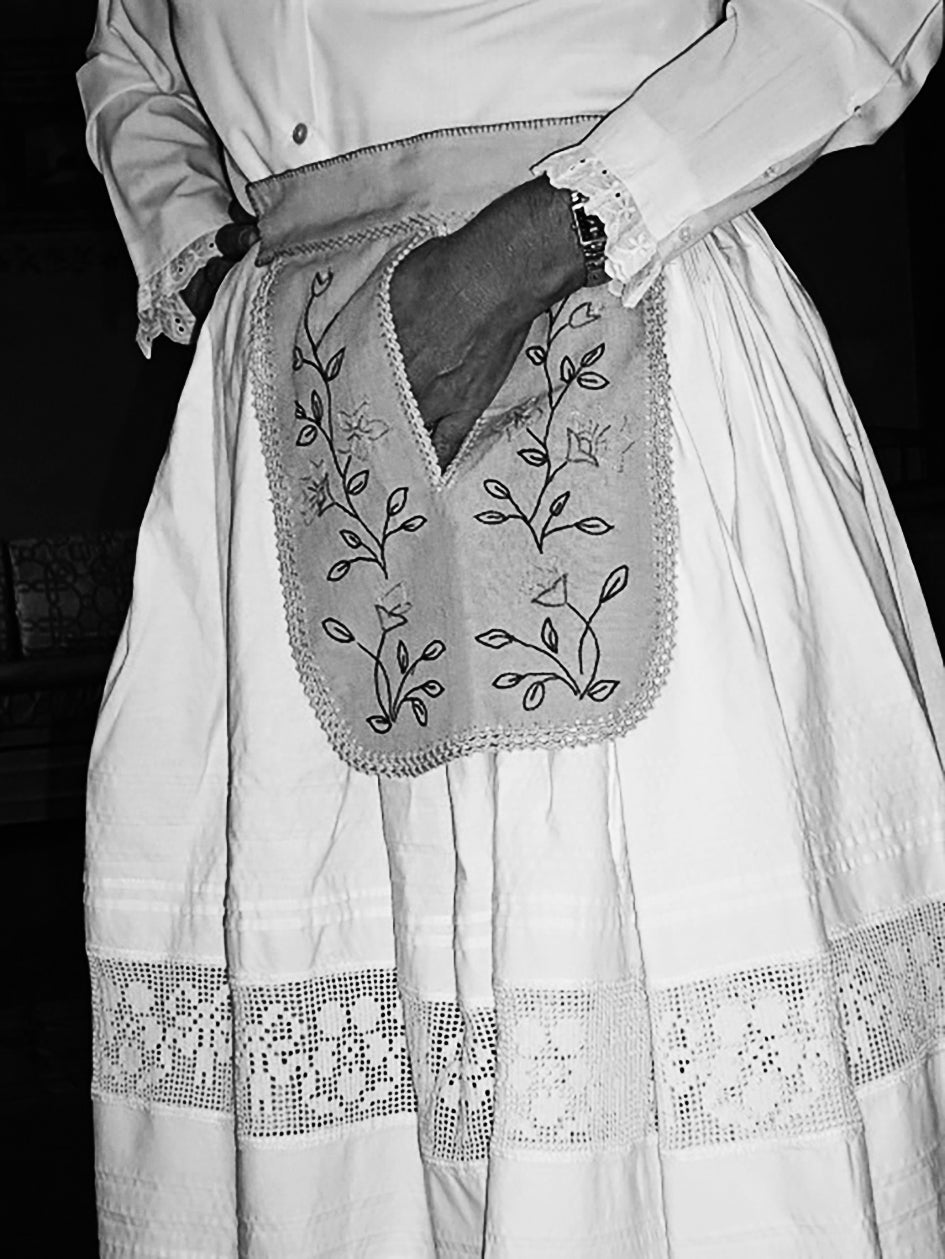
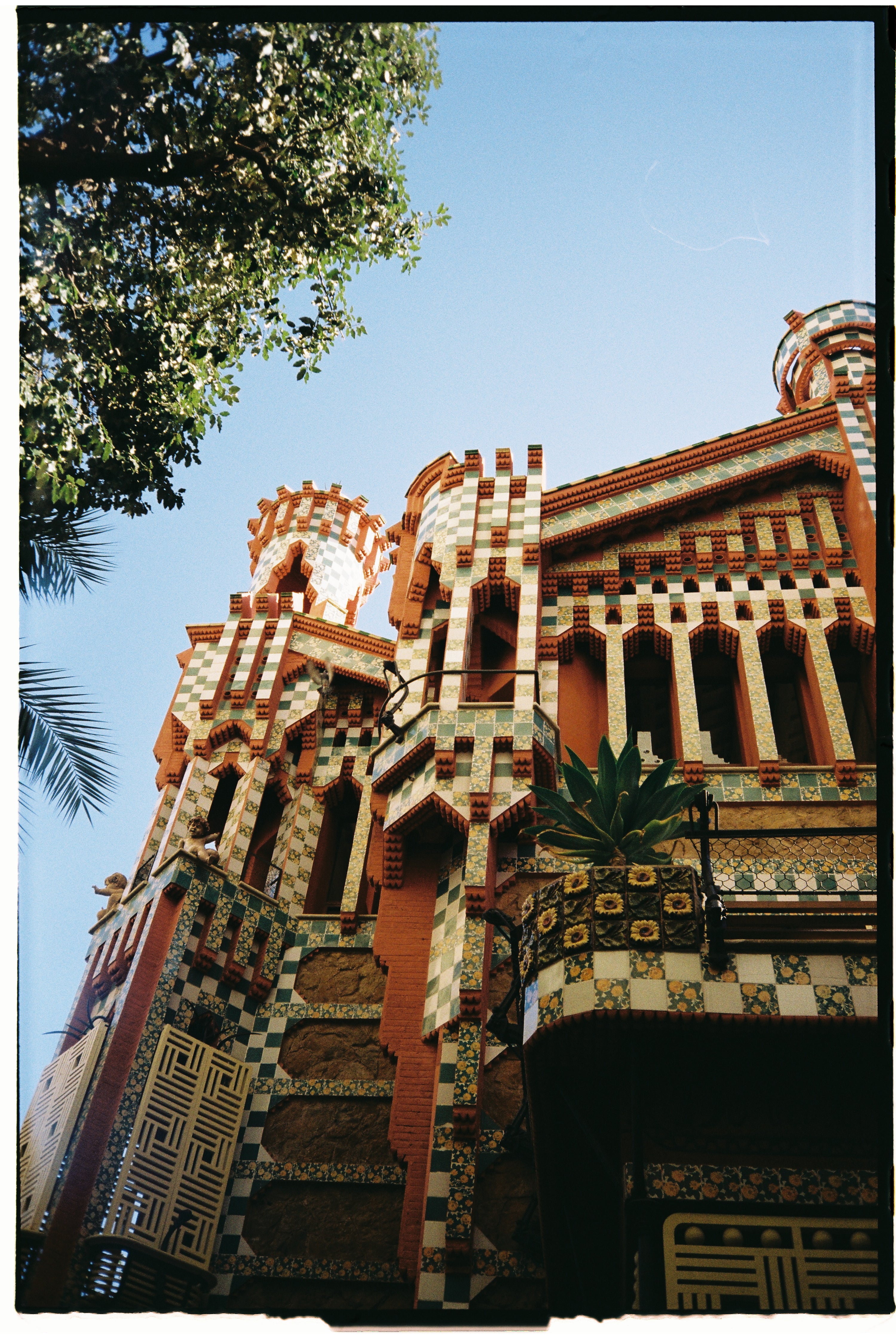



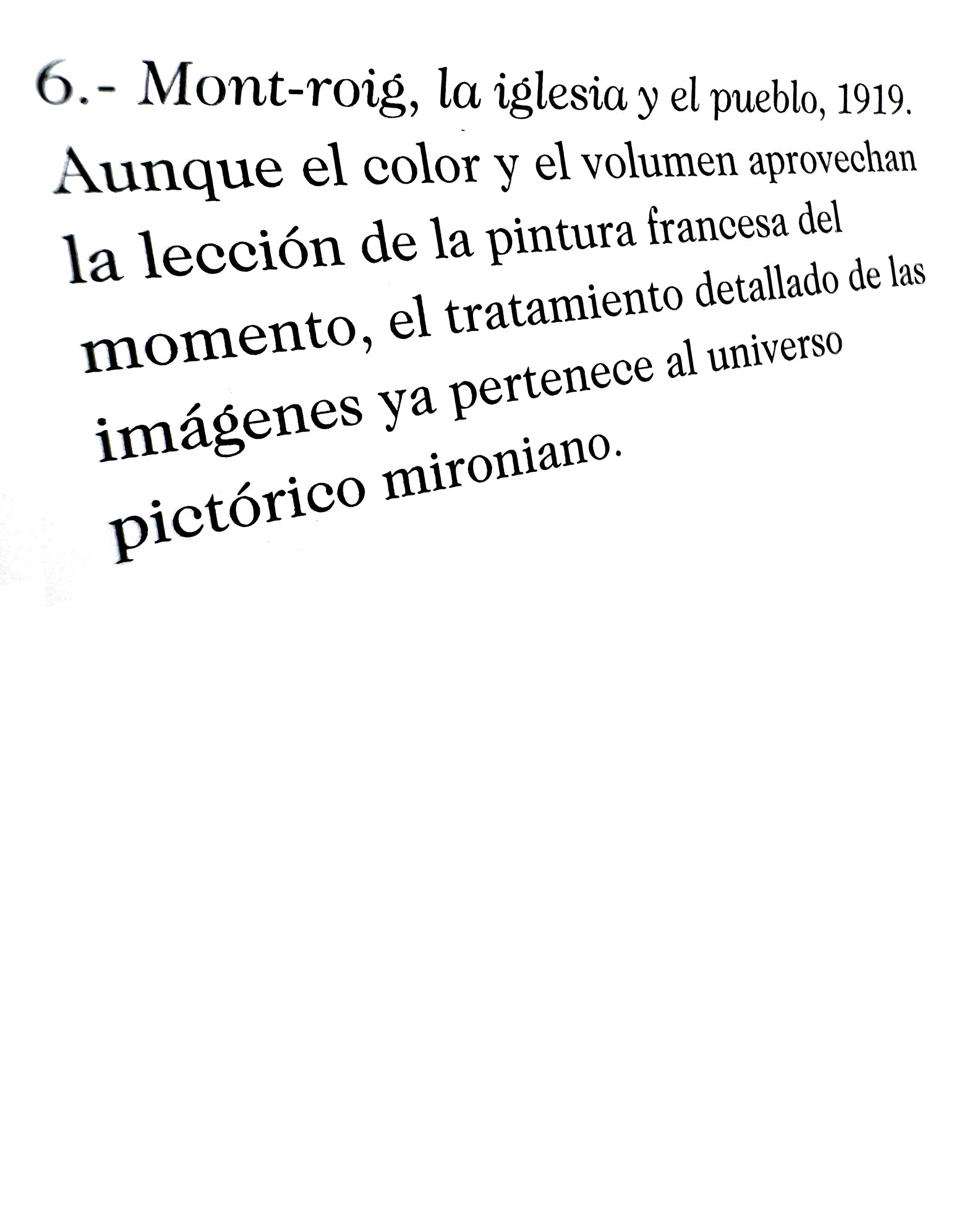




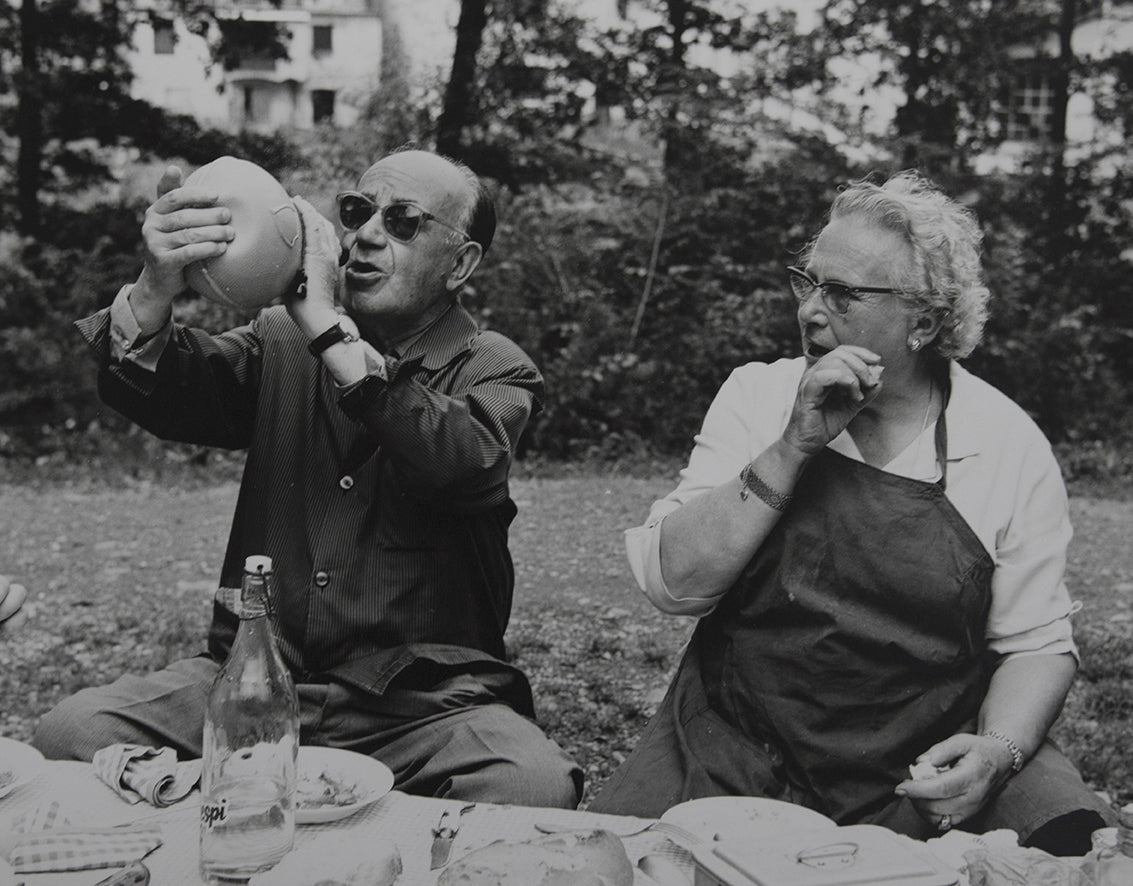
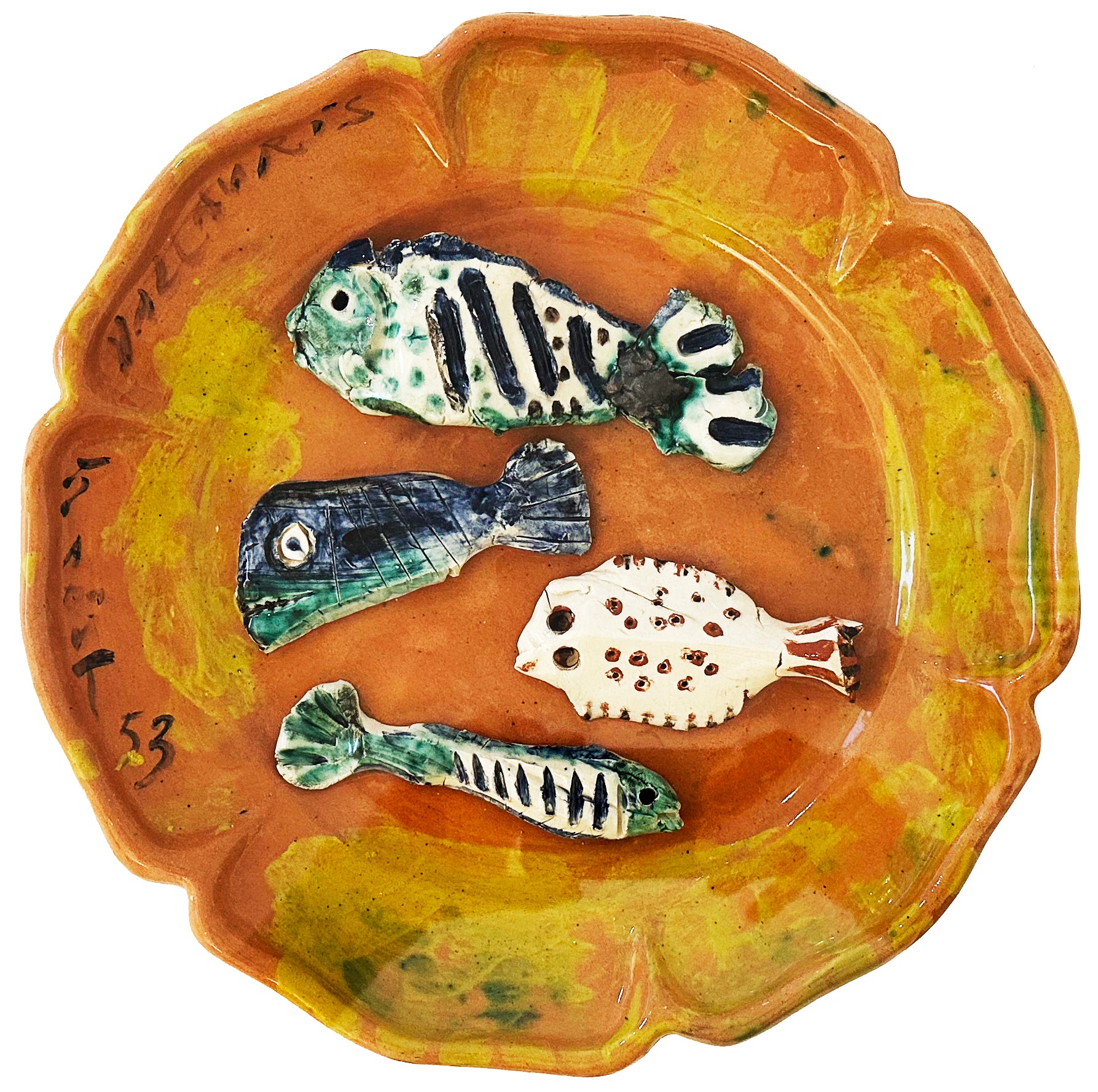
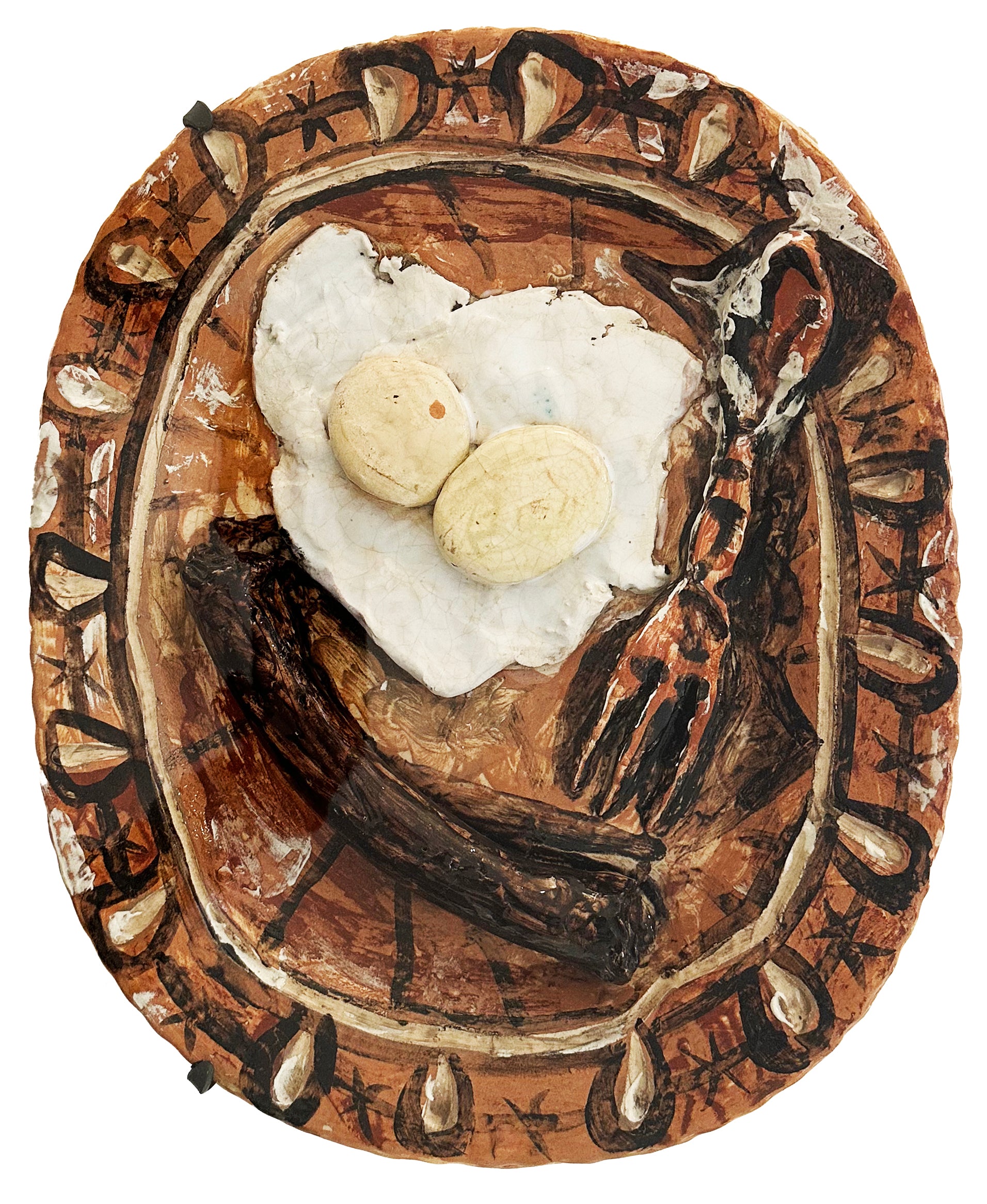
"Plato con peces" and "Butifarra y huevos"
Pablo Ruiz Picasso
All the names of GOSPEL ESTUDIOS products draw from Spanish heritage, reviving old words, myths, and vocabulary from artisanal crafts and trades. We also blend Spanish and English in our communications because this reflects our everyday speech, and because some expressions simply do not translate fully outside our native tongue.
Similarly, we weave elements of traditional attire into our design narrative. A good example is the CORTE GE, the cropped cut featured in all our tops, which recontextualizes the length of the labor attire that has been a staple in Spain for centuries. This cropped style was popular throughout the peninsula because of its practicality for working and riding horses, allowing the wearer to move freely.
Another way in which we connect with our culture is by paying attention to the máscaras. Spain has a rich history of pagan celebrations that merged with Christian festivals, making space for unusual syncretisms and wild masked traditions. The masks worn by creatures such as the Jarramplas, the Colacho or the Peliqueiros embody the essence of the Iberian peninsula, creating shared stories that bring people together and enrich the cultural life of the community.
There is a sense of mystery and mysticism that is characteristic of Spain and remains deeply rooted in our identity. The mask, the many masks of a country as diverse as ours, invite us to turn our eyes towards the sacred.
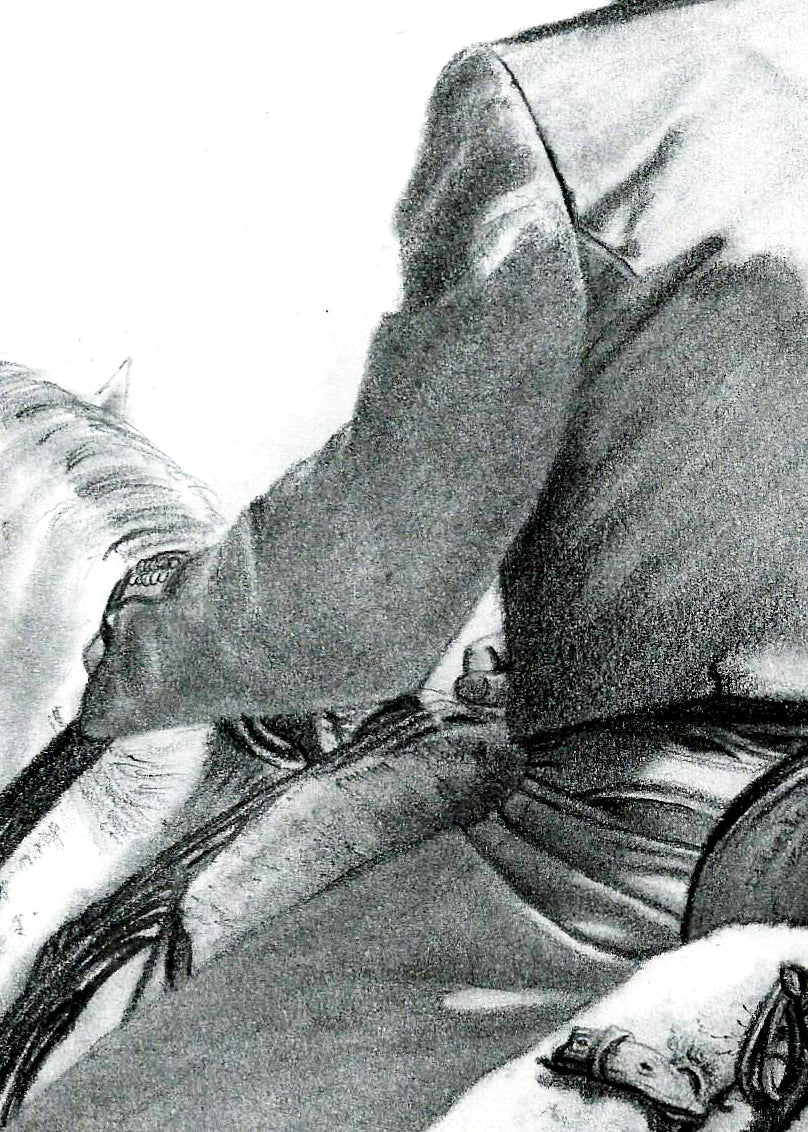
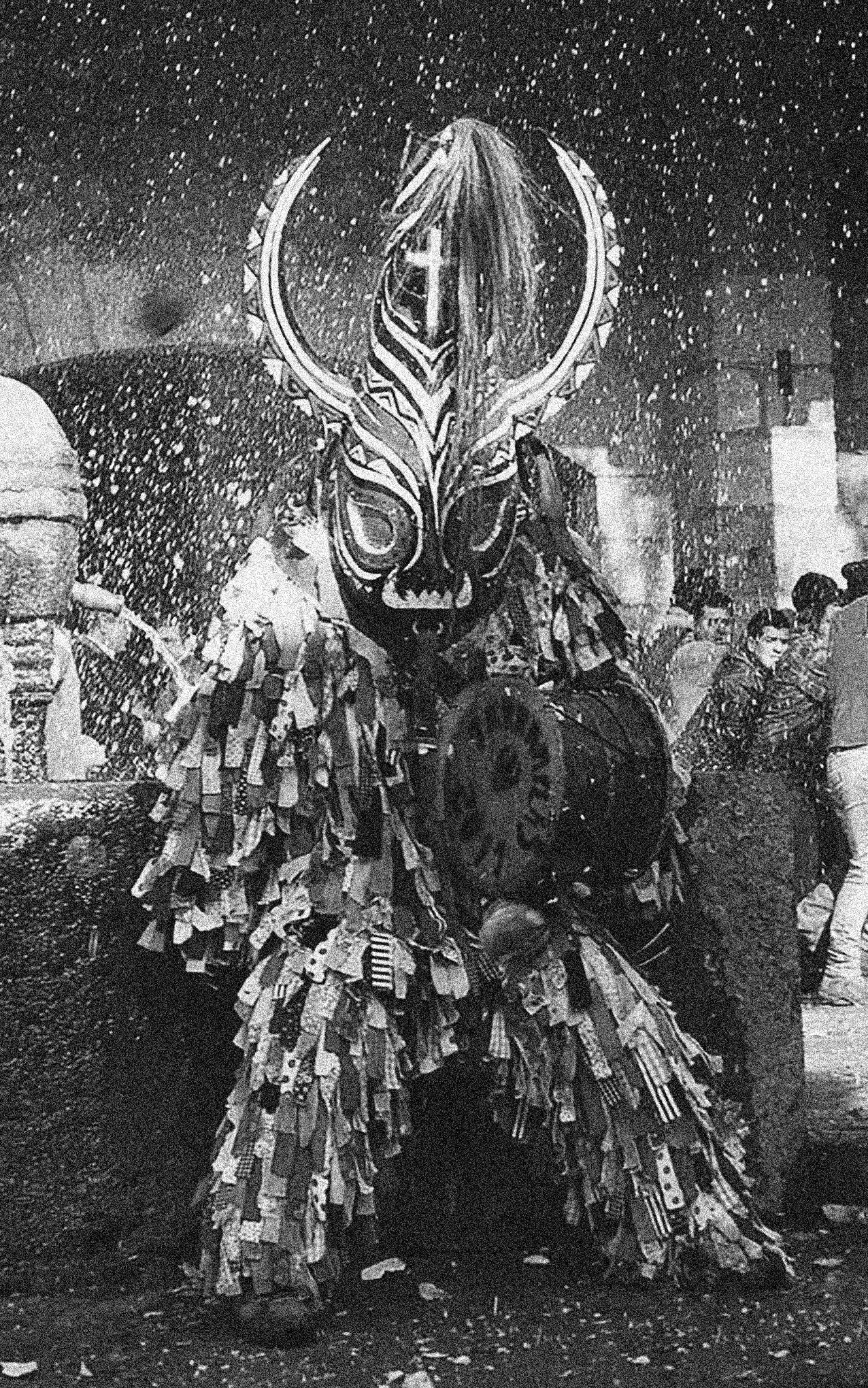
Handcrafts also play a big role for us. Our country has an amazing tradition of artisanship in textiles, woodworking, ceramics, glass, wicker, and more, that is fading away in a culture obsessed with instant gratification. The generational obsession with speed has backfired on us, leading to fewer opportunities for local artisans who have honed their skills over decades, sometimes even centuries.
We’re here to learn from and collaborate with the craftsmen and women of Spain. Their work is a part of our cultural heritage that deserves attention, respect, and care. But beyond their aesthetic and functional value, these traditional methods often required making do with what was at hand, which meant avoiding waste and developing clever techniques to recycle, optimize resources and manage raw materials. We love our jarapas, traditional woven rugs made from leftover fabric scraps.
We think there is a lot to learn from them, and more broadly, from revisiting the practices of working with the hands and dedicating time to tasks, because todo lleva su tiempo.
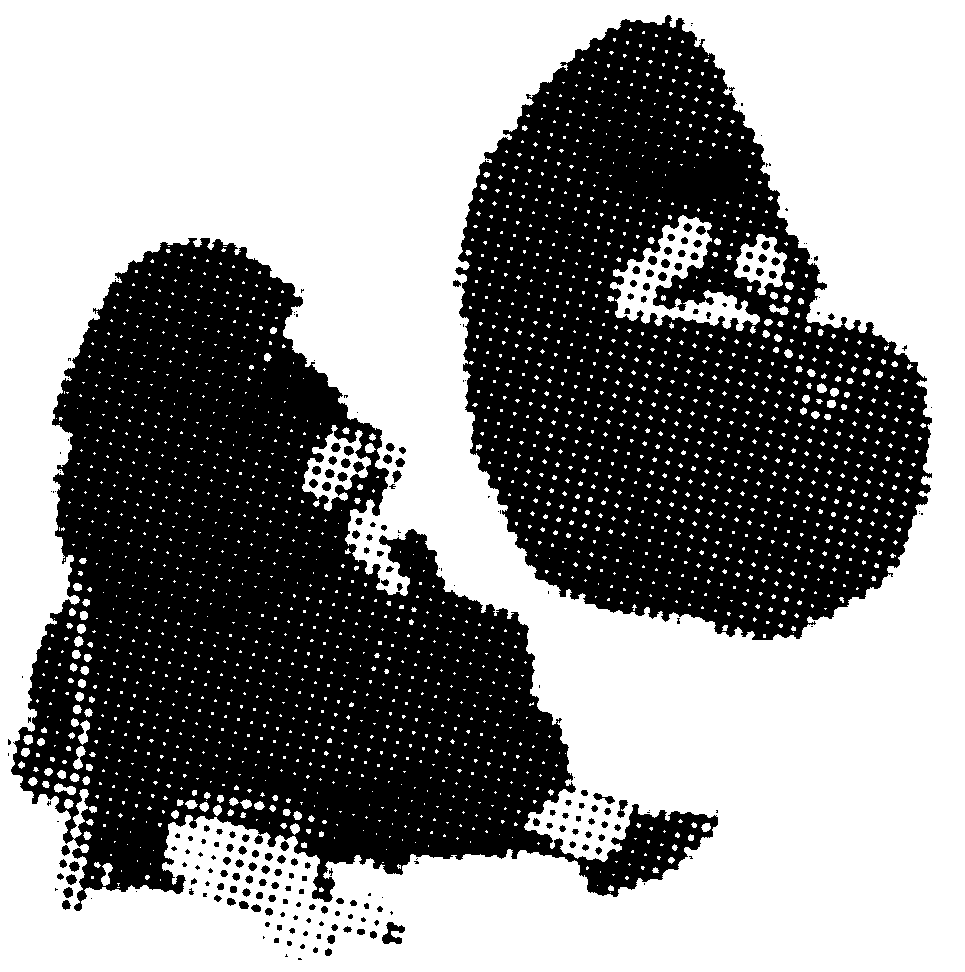
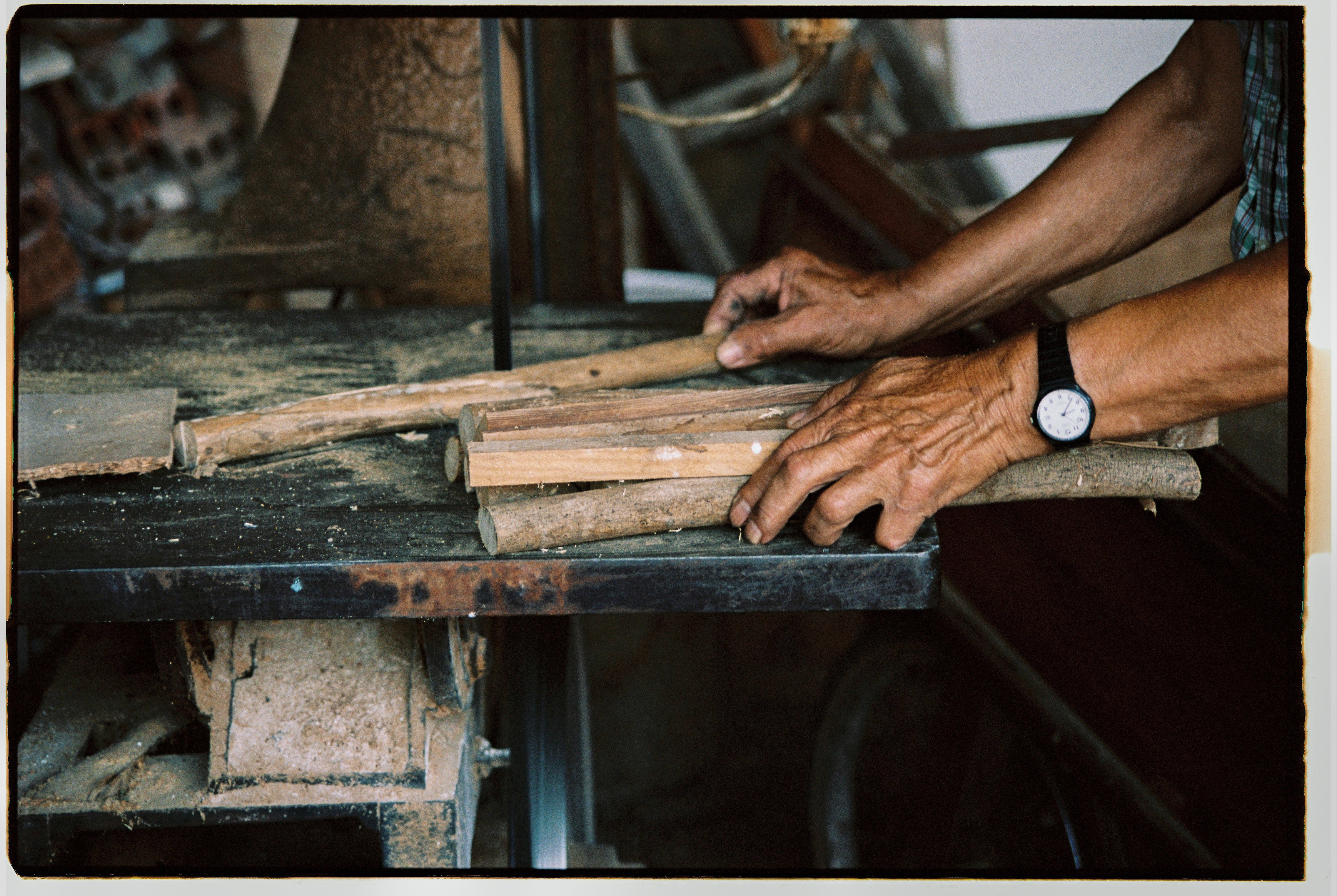
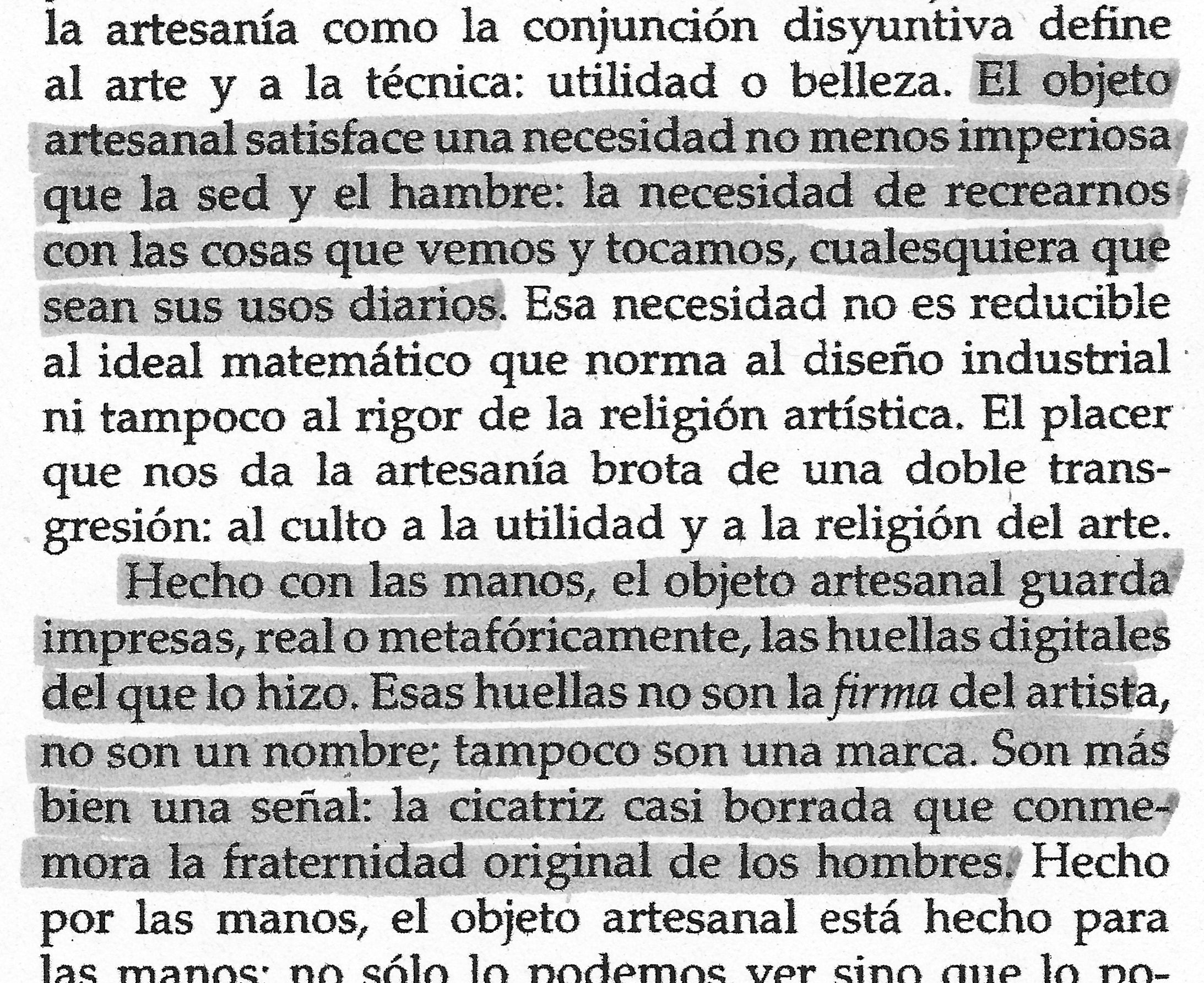
Octavio Paz — "El Uso y la Contemplación" (1988)

Richard Sennett — "The Craftsman" (2008)
We also live Meta–Spanish
We were born into a lifestyle. People from our pueblo call us by the same names they use for our parents and grandparents. We gather for meals and spend many hours around the table having heavy conversations. To decompress, we go for afternoon paseos or tomamos algo with our friends at our bar de siempre. We ask if there’s something fuera de carta. We’ve eaten sunflower seeds in the park growing up.
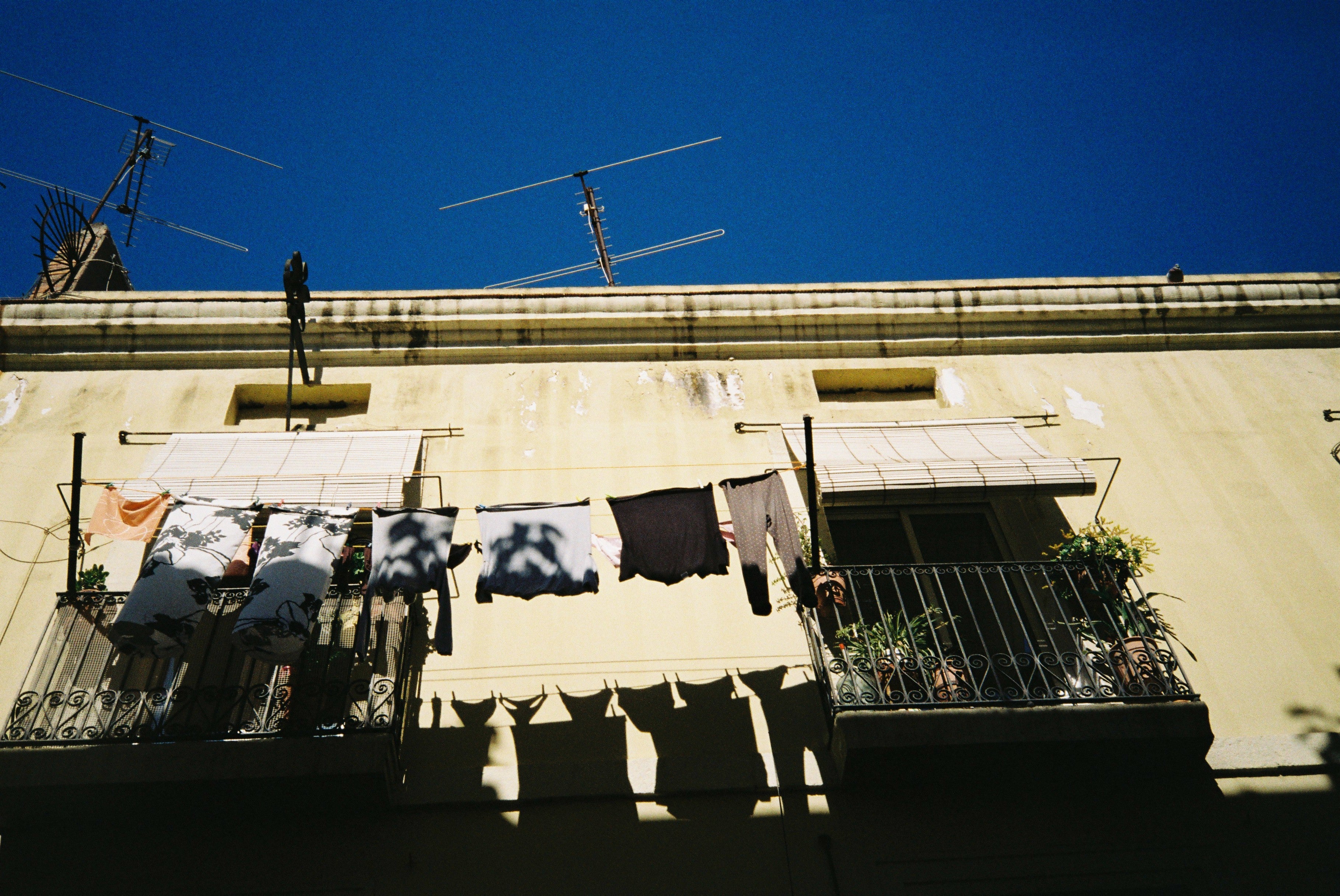
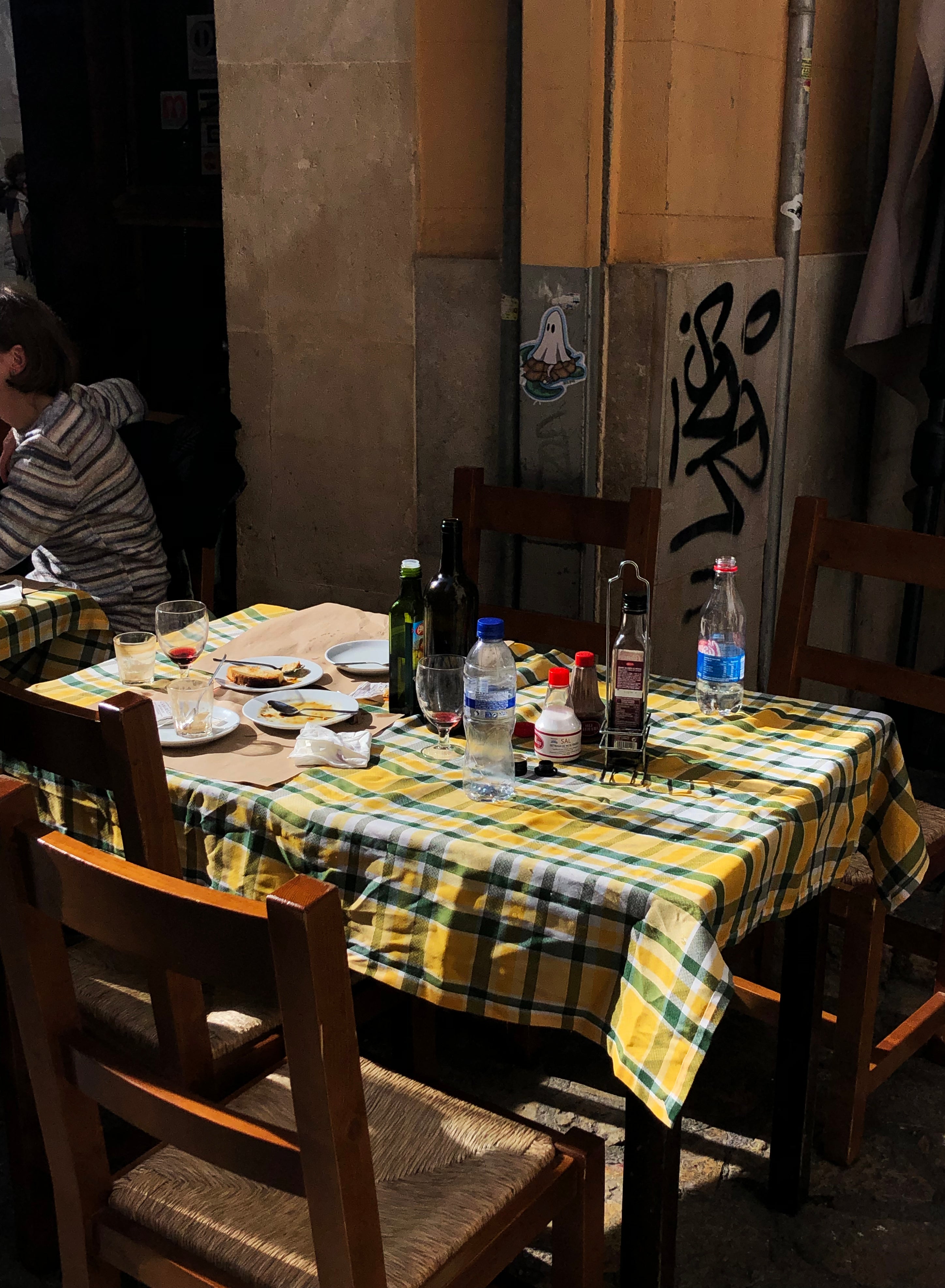
GOSPEL ESTUDIOS is not an abstraction, but a collective rooted in Barcelona. And this collective is formed by people who share their daily lives in a space where the project unfolds and the community gathers. While not all of us are from Barcelona, we all have connected here and share an appreciation for the Spanish way of life, our particular tempo, and the sense of humor inherent to our culture. We’re always joking around, ‘siempre estamos de risas’, and we believe this spirit permeates everything we do.
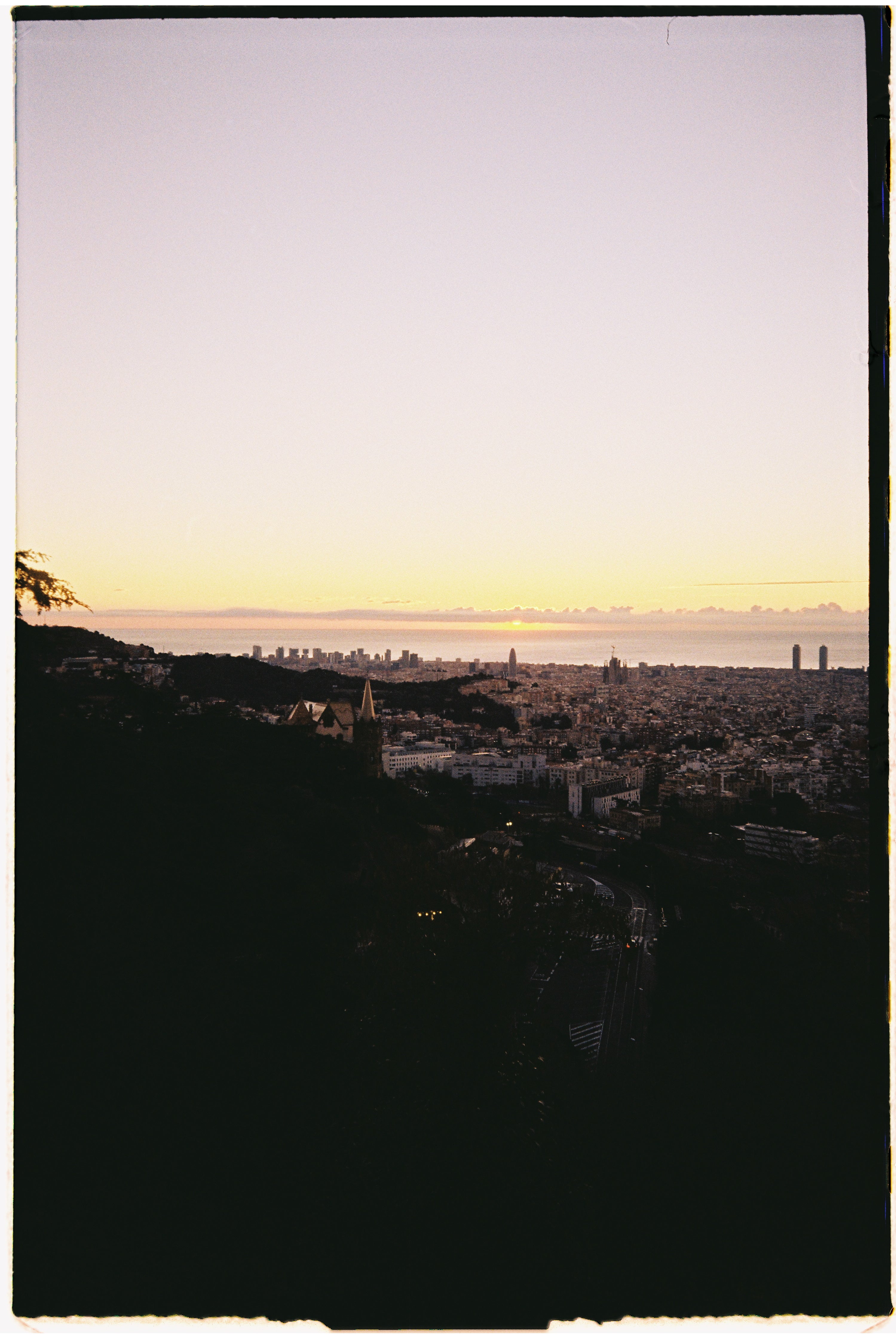
Barcelona
Mar Mediterráneo

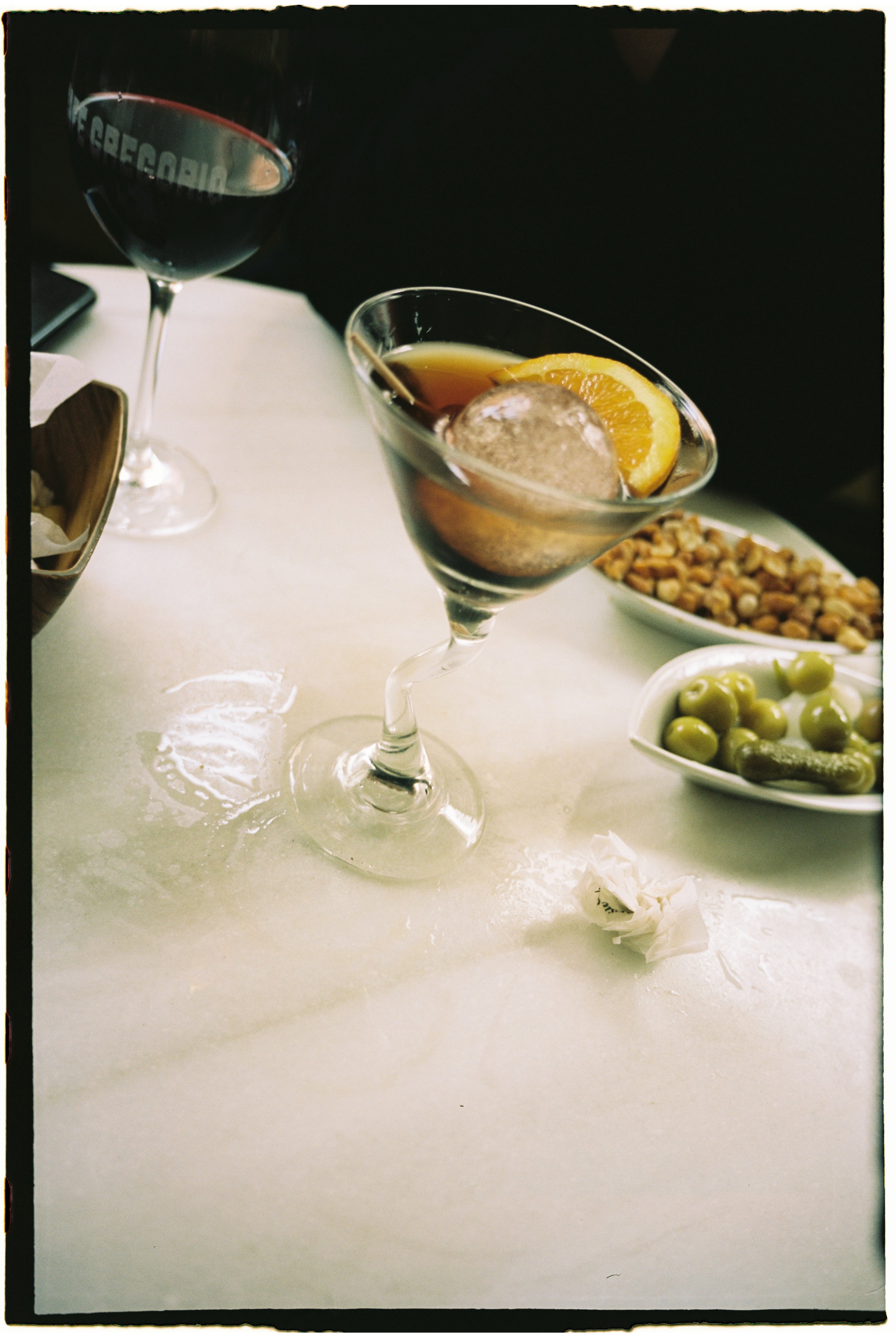

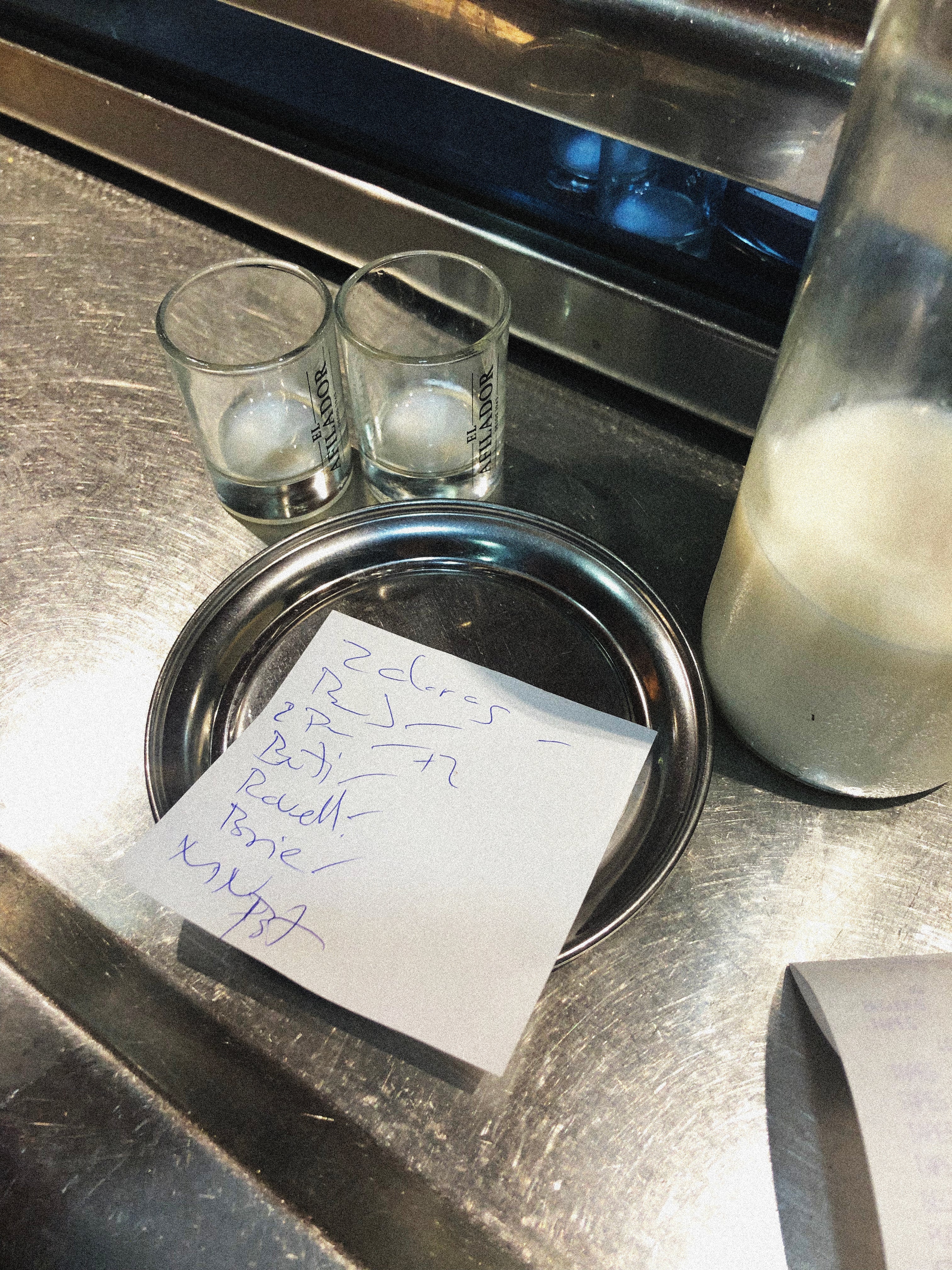
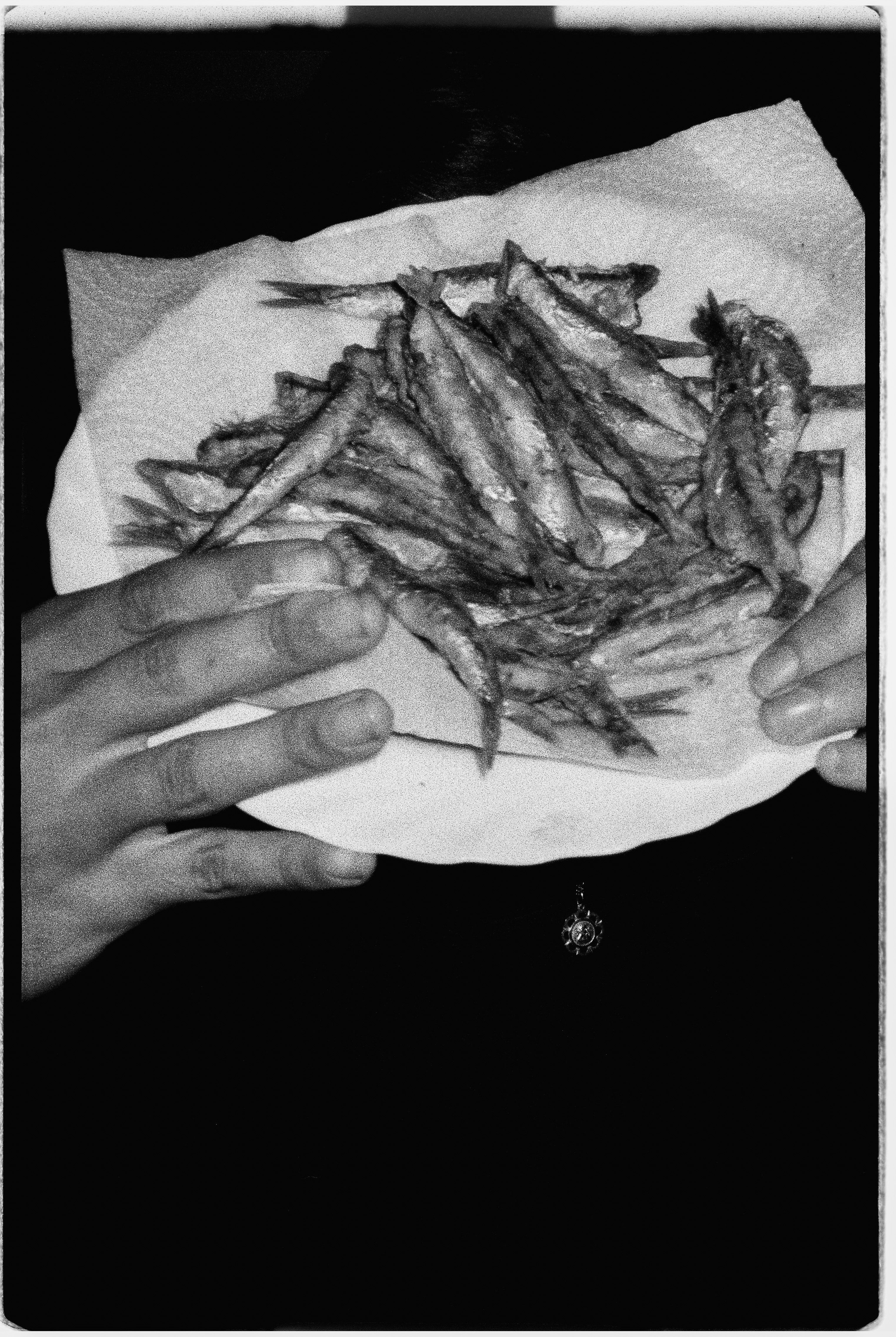
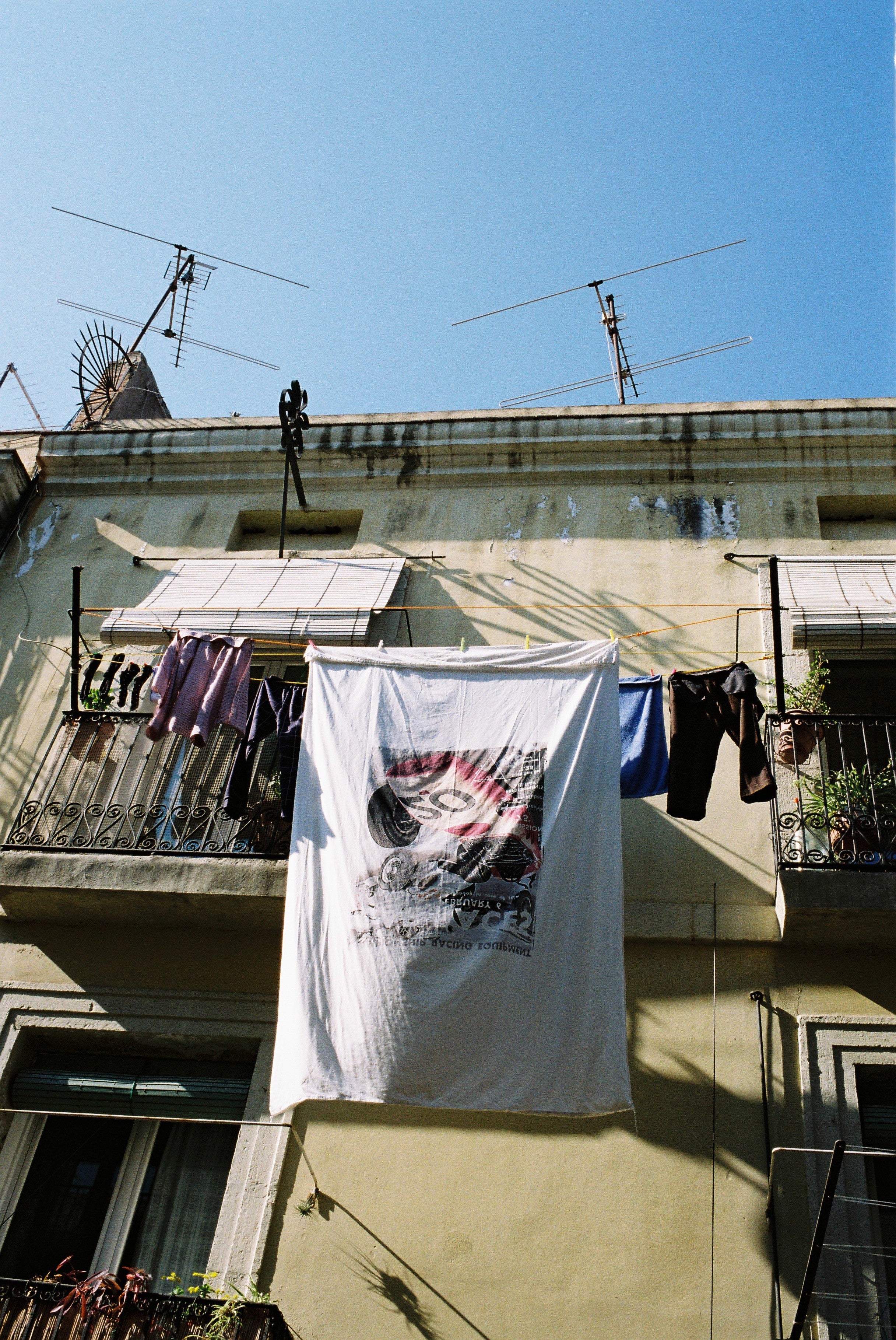
In Spain, we call this unique sense of humor by many names. La guasa helps us address problems while avoiding direct conflict, serving as a coping mechanism in uncomfortable situations. La chispa allows us to start difficult conversations with humor and satire. La picaresca helps us navigate tricky situations with wit, irony, and criticism. And we also love Surrealist humor, which employs decontextualization, confusion and the power of the absurd. But we’re not just about old jokes—our contemporary risas game is on point, too. You’ll see. Somos líderes en el sector.

"País" de Joan Brossa


